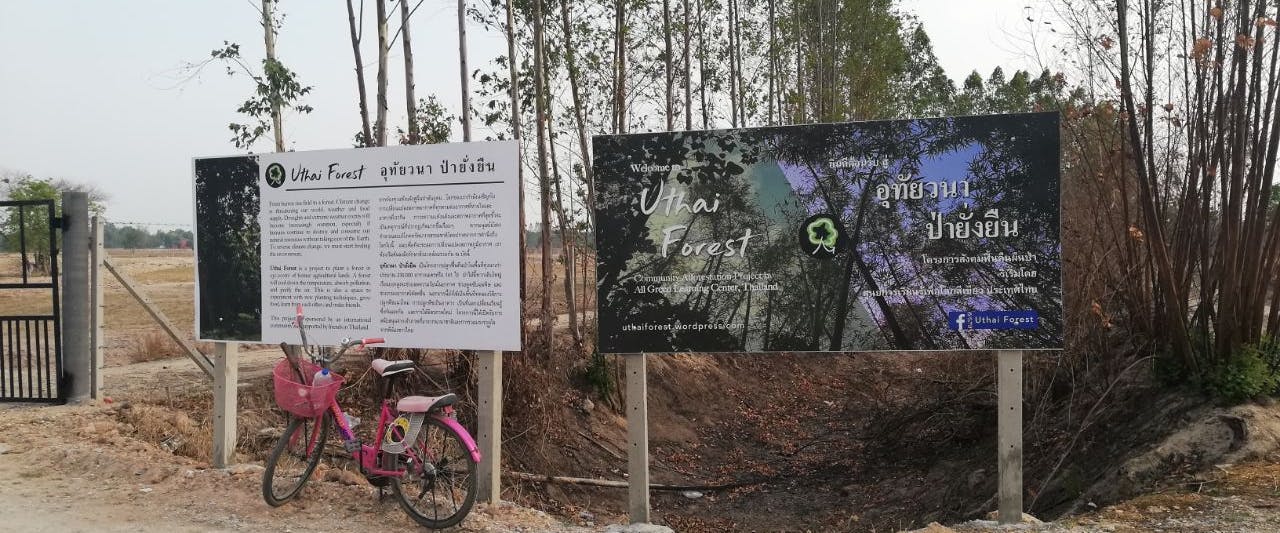
A Letter From Thailand
This article is part of our theme-based journazine titled "The Sauce". The inaugural issue focuses on Soil, as we believe that soil is the foundation of all things to come. Print and digital copies of the full issue are available here. Check it out for more stories from the community and how Foodscape Collective's projects have come about.
Dear friends,
I’m writing to you from a warm morning in Khon Kaen, Thailand.
Khon Kaen is a novelty for me. I had neither heard of the province until last week, nor thought to visit. Since shifting to Thailand, I've visited many previously foreign parts of this beautiful country, much bigger and more diverse than my own - Khon Kaen is just another piece of that puzzle.
I’m here attending an intensive short course on forest planting. It’s organized by a local nonprofit (the “Native Species Reforestation Foundation”), which aims to teach people how to plant forests with native species for climate change mitigation.
One year ago, if you told me that today I would be attending a tree-planting course entirely in Thai while working to plant a food forest elsewhere in Thailand, I might have laughed. Forests were not something I associated immediately with climate action. That felt like more of a job for the UN’s Sustainable Development Goals, recent global strikes to raise collective climate awareness inspired by Greta Thunberg, or widespread campaigns for plant-based diets and eschewing single-use plastics.
Those are great, but make me question - where is the action?
Certainly, these movements have admirably brought climate change to global prominence. But what’s the real issue here?
There is too much carbon dioxide in the atmosphere, causing the planet to heat up, now drastically and unalterably. It is there because we continue to extract and destroy natural resources, including fossil fuels. This enables the endless consumption and disposal of today’s world, catalysed so easily by capitalism. If you are reading this, you are probably not unfamiliar with the crux of the problem.
So how do we solve that? It is quite straightforward actually, just an equation of plus and minus. If there is carbon in the atmosphere, we have to take it out. What is the best, or dare I say, only way of doing that permanently?
Planting trees.
Trees, soil, fungi - they are nature’s carbon sinks. As they grow, they store carbon in their bodies; their thick trunks, slim branches, leaves that fall to form a dense forest floor, creating habitat for new life.
Why a forest then? Is there a difference between planting trees, and a forest?
A forest is a self-sustaining ecosystem. It has many layers in height (imagine a tall canopy, understory above our heads, shoulder-height shrubs, bushes, vines and grasses) and time (growing and dying so that new life may flourish). We design and grow forests, instead of simply planting trees, to create something that will outlast us.
But why a food forest, instead of a regular forest?
While we live, we need food. We may think of farms - neat rows of greens and livestock pens as the sources of our food. But a forest can provide all we need for sustenance and more, in greater diversity and no less yield. We can glean mangoes from the low-hanging branches of tall, statuesque trees, and beans of all sorts at arm’s length. Passionfruit from vines that climb tree trunks and branches; potatoes and pumpkins from the earth. Not to mention the forest’s unnameable variety of edible greens, as well as the animal life it can support. Such a forest can produce food, clean air, and water; what else do we need to thrive? If what sustains us is also a living, breathing, carbon ‘vacuum’ - I think we have a winner.
The day has stretched into a cool, gray dusk - in between penning this letter, I finished the last day of the course. We learned different strategies to establish forests, and planted seedlings under the shade of a majestic raintree. It was almost idyllic, even as we gained this knowledge to insure against the greatest disaster of our lifetimes. In this time of crisis, it seems ironic to think of trees - stately, almost sluggish beings - as our most lasting way out. But we can only rely on life to preserve life.
I feel alive, though physically tired; I will end here. I hope you can join me at my project Uthai Forest, and we can steward life together - both the trees’ and our own. They are equally important for the days ahead.
All my love,
Hui Ran
April 2019
Sorry, but this article is for Sauciers only. Enter your access code or get online access to this issue of The Sauce to read the rest of this article.
Dig Around
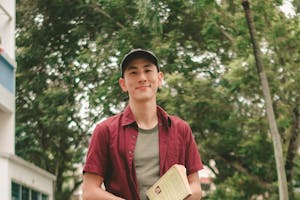
Chris - on homecoming; unpacking "sustainability", self-care for farmers and gardeners, and reality checks
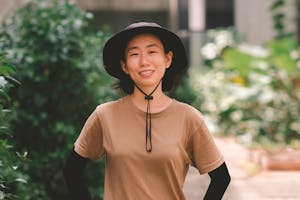
Ee Peng - a syntropic Zen farmer in an industrial space
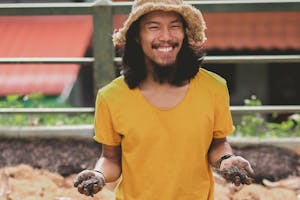
Marcus - your friendly neighbourhood (market) farmer
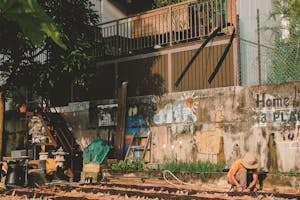
Local Food Systems and Climate Change
Contact Us
Drop us an email or DM on Instagram if you would like to give us feedback, support us in any way, or just to connect!
Foodscape Collective
Foodscape Collective is a ground-up community with a mission to co-create a fair and inclusive circular food system for all. We work together to create communities and livelihoods through collaborative and supportive practices.
Copyright (C) 2025 - Foodscape Pages. All Rights Reserved